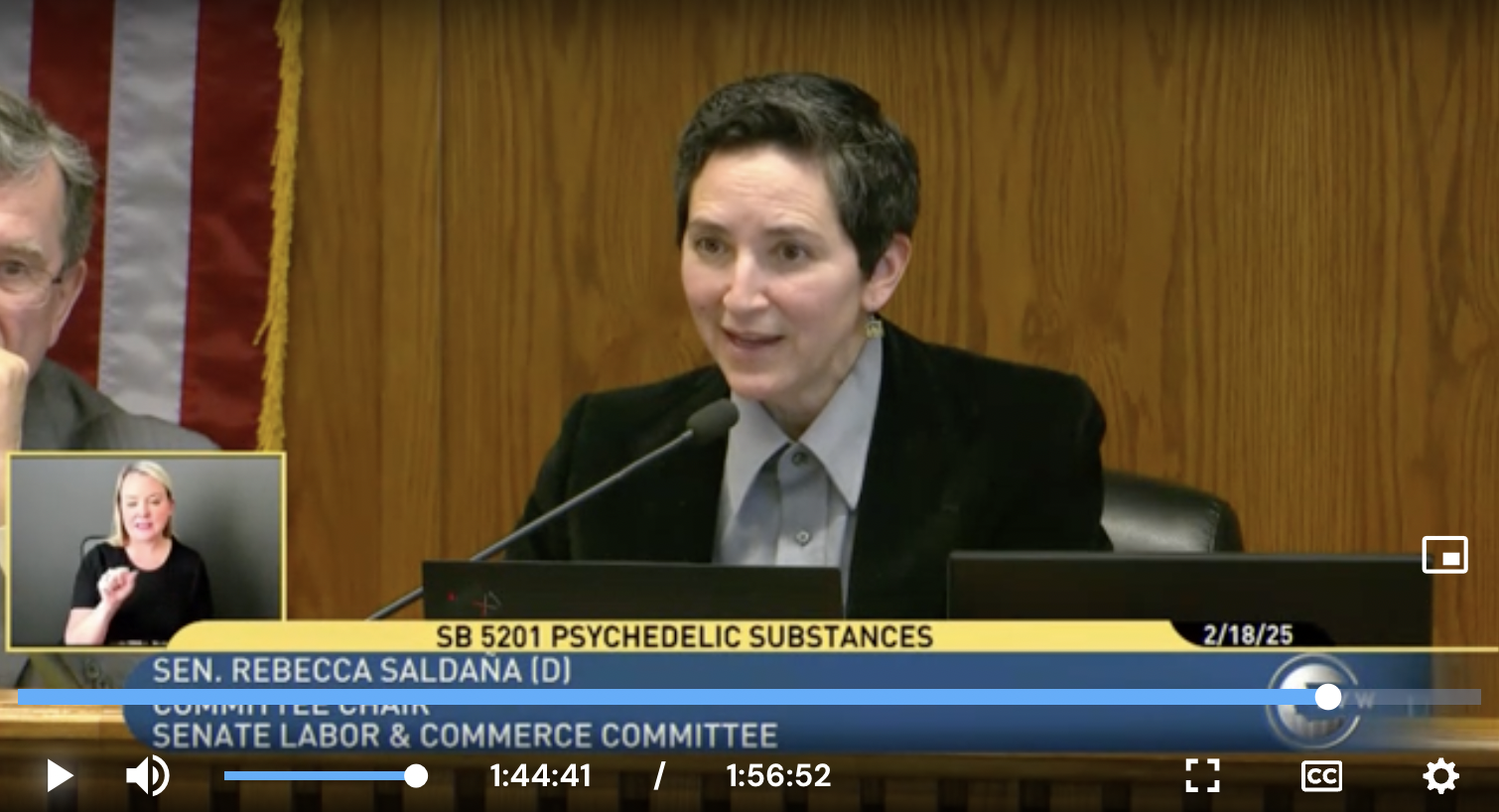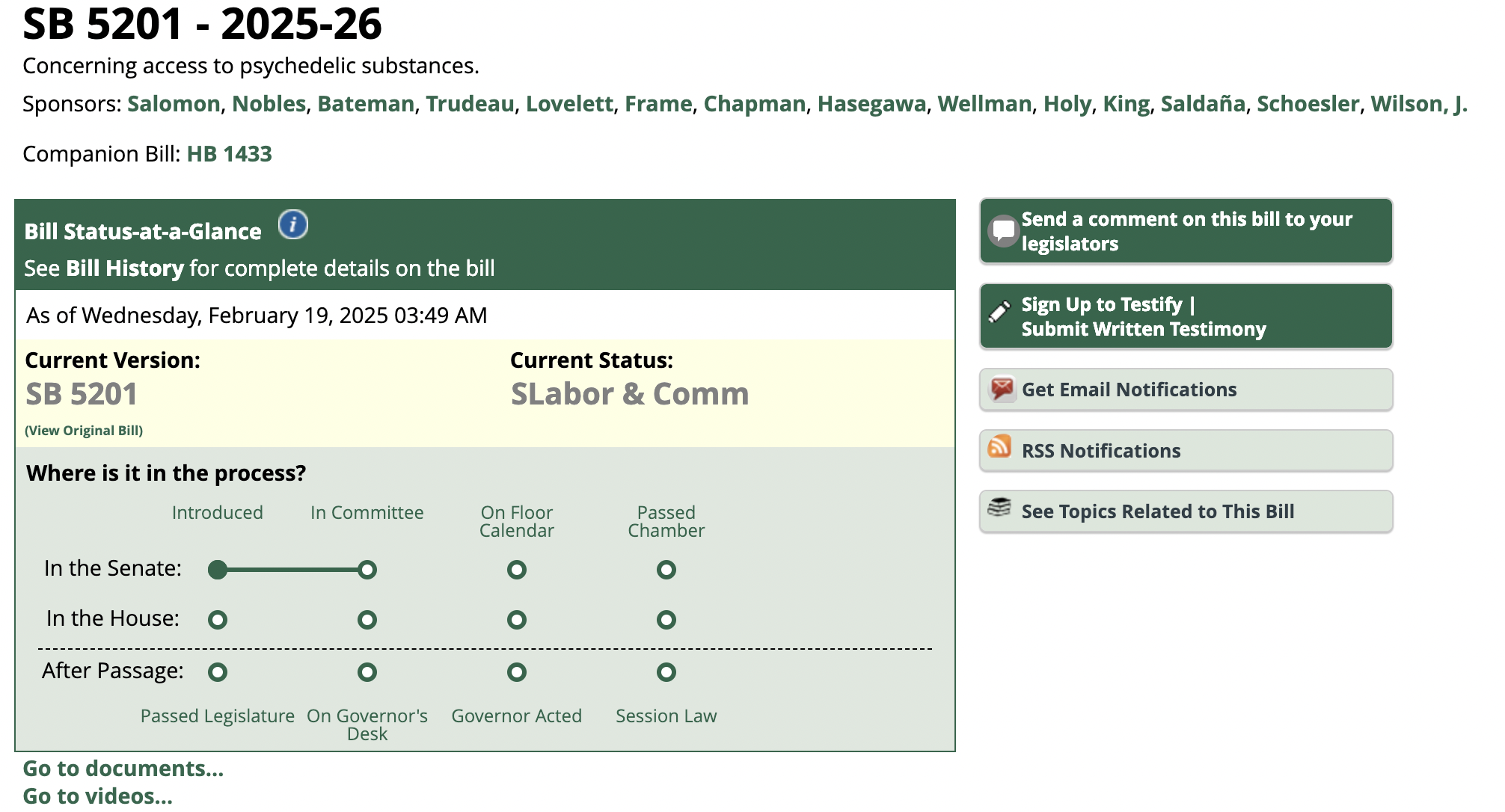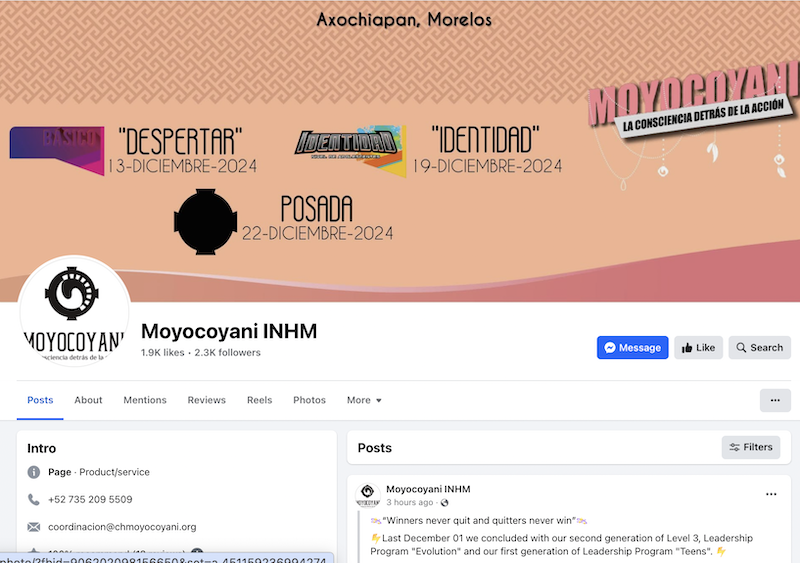Originally Published In Buffalo Business First
A seismic shift in how we discuss mental health has occurred over the past few years. A willingness to engage in the topic beyond mere lip service at home, in our communities, and in our places of work is a testament to the profound progress that has been made in reducing the stigma associated with these conditions of Health and Human Services create a federal inter-agency task force to address issues of psychedelic use, therapy, and health care integration. Proposed pieces of legislation have been introduced to allow for psychedelic use under the federal Right to Try Act, and to amend the Controlled Substances Act to grant the U.S. Drug Enforcement Administration the ability to transfer Schedule I substances into Schedule II provided such substances have received either FDA Breakthrough Therapy designation or authorization for use in FDA’s expanded access program.
Finally, a bipartisan Congressional caucus entitled Psychedelics Advancing Clinical Treatments (“PACT”) was formed this past November to explore psychedelic research related to mental health conditions.
Medicinal psychedelics are coming to mainstream health care in the very near future. But the treatment protocols and clinical settings in which psychedelic care is delivered will be very different from any existing model in our health care system. Medical professionals and health care entities seeking to operate in this new medicinal psychedelics space should consider engaging legal counsel who possess not only a strong comprehension of the law, but also an in-depth understanding of the science behind these drugs and their medical applications. Kyle W. Mack, J.D., Pharm.D., is special counsel at Phillips Lytle, co-leader of the firm’s Psychedelics & Mental Health Therapies Practice Team and a member of the firm’s Life Sciences & Health Effects Practice Team. He can be reached at (716) 847-7068 or kmack@phillipslytle.com. in a relatively short amount of time. Equally as profound are efforts by clinicians, researchers, and state and federal legislators to find and implement new treatment options for mental health conditions. These efforts have been focused on an area of pharmacology that one might think strange or even absurd at first blush: psychedelics. Psilocybin (“magic mushrooms”), MDMA (“ecstasy,” “molly”), LSD (“acid”), and dimethyltryptamine (“DMT”) are all being researched as medications to treat a wide variety of mental health and substance use disorders. Why? Because clinical research has shown – and is continuing to show – that these compounds may have superior efficacy compared to existing FDA approved medications when combined with psychotherapy. In August 2017, the FDA granted Breakthrough Therapy designation to MDMA for the treatment of posttraumatic stress disorder (PTSD). In 2018 and 2019, it granted Breakthrough Therapy designations to psilocybin for treatment-resistant depression and major depressive disorder, respectively. Breakthrough Therapy designation is a process designed to speed up the development and review of medications intended for the treatment of serious conditions. It is granted on the basis of preliminary clinical evidence indicating that the medication under investigation may have potential for superiority over approved therapies on at least one clinically significant endpoint. FDA approval of MDMA for PTSD is expected in 2024, with approvals for psilocybin to follow.
While drug sponsors pursue the FDA approval route, several states have taken initiatives to create their own state-regulated frameworks to bring psychedelic compounds to their residents in controlled settings. Oregon was the first to pass legislation providing for psilocybin treatment centers. Connecticut and Colorado have since passed their own measures. New York has two proposed Assembly bills (A8569a, A7928) and one proposed Senate bill (S3520) that would establish regulated systems for the medical administration of psychedelics for mental health conditions. A8569a was introduced by Buffalo native, Assemblyman Patrick Burke. These state initiatives across the country are occurring at a time when psychedelics are still classified as illegal narcotics under the federal Controlled Substances Act. But federal bipartisan support for the use of these compounds as medications appears strong. In the past year, members of Congress have requested that the U.S. Department
Our expertise in both law and science helps us look at the issues through a variety of lenses. That’s The Phillips Lytle Way. Count on our multifaceted Life Sciences & Health Effects Practice Team to provide you with deep knowledge wherever scientific and legal issues meet — from defending high-stakes product liability litigation to risk assessment and regulatory compliance. We understand the science behind the issues like few law firms can. Our team of experienced mass tort litigators, lawyer/scientists, scientific specialists, and skilled supporting professionals knows how to take data and developments and interpret them through business risk and litigation risk lenses. And we know how to communicate complex scientific issues to adversaries, regulatory bodies, judges, juries and stakeholders. Talk to us and learn why clients have focused in on Phillips Lytle.
Authors
By Kyle W. Mack, J.D., Pharm.D. Phillips Lytle LLP
Contact
https://phillipslytle.com/people/lisa-l-smith/


 Cannabis News2 years ago
Cannabis News2 years ago
 One-Hit Wonders2 years ago
One-Hit Wonders2 years ago
 Cannabis 1012 years ago
Cannabis 1012 years ago
 drug testing1 year ago
drug testing1 year ago
 Education2 years ago
Education2 years ago
 Cannabis2 years ago
Cannabis2 years ago
 Marijuana Business Daily2 years ago
Marijuana Business Daily2 years ago
 California2 years ago
California2 years ago



















